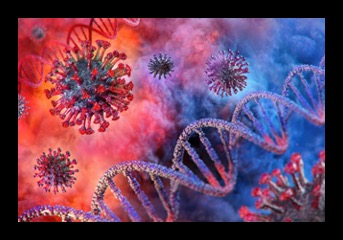A Silver Lining In
The Covid-19 Pandemic? [1]
“The purpose of life is a life of purpose.” – Robert Byrne

James A. Cusumano, PhD; Chairman Chateau Mcely s.r.o. Prague, Czech Republic
Perhaps you’ve seen one of a dozen movies like Armageddon, Deep Impact, or Night of The Comet, in which the Earth and all living species on it are threatened by the impending collision of a large object careening towards it from deep space. The overarching premise in all of these films is usually the same—avoiding the extinction event requires intimate cooperation of nations around the planet, many of whom, such as Russia, China and the United States are at significant odds with each other. It’s a no-brainer for their complete mutual cooperation since everything is at stake.
Pulitzer Prize-winning author, Jared Diamond recently raised this point in a prescient article in the Financial Times concerning the Covid pandemic (FT, May 31, 2020).
Certainly, the pandemic is a tragedy for its victims and their families, as well as for the economic hardship it has placed billions of other people around the world. So, it seems somewhat appalling to think that anything positive could come of this disaster. However, Diamond suggests that the pandemic has the possibility to bring important permanent benefits to the world, depending on how nations of the world deal with it.
He correctly points out that Covid-19 (see ,Figure 1) does not represent an existential threat to our survival and the global economy. Both will eventually recover over time.
However, there are other threats that fall in the existential category and would likely lead to the complete demise of our species and the entire world economy. They include, for example; advertent or inadvertent detonation of a large number of nuclear weapons; climate change; unsustainable use of essential resources such as our forests and fresh water; and destabilization of our existence due to dangerous civil unrest caused by the ever-increasing gap in the standard of living between the “haves” and “have nots” of this world.
Unfortunately, these threats are not nearly as effective as Covid-19 at convincing us to take global collective action against our common enemy—the virus. Why? Because the effects of Covid-19 are immediately and unequivocally obvious to all—we see the daily increase in the number of cases and deaths, and we experience the economic impact around us.
With the exception of the nuclear threat, which may or—as some hope—may not occur, others such as climate change are happening right now, but at a rate which many of us mistakenly believe we can live with—perhaps thinking, we have too many other challenging things to worry about; someone else in the future will have to deal with this. We behave like the frog floating comfortably in a pot of warm water that’s being slowly heated to boiling—he is completely oblivious until it’s too late to jump out of the pot.
However—and here’s the possible silver lining in the dark cloud of the Covid virus—if, as in the films mentioned above, nations around the world work diligently and cooperatively against our common threat—the virus—they will have set a precedent and developed a strategic knowledge base on how to deal with the encroaching existential threats before it’s too late, and thereby minimize their negative global impact.
To be successful at capturing this silver lining for not only the pandemic, but most importantly for these impending existential threats, it’s imperative that all nations make an honest appraisal of their and the world’s situation; that they acknowledge the reality of the specific threat—denial is unacceptable; and that they accept responsibility to do their part as a player in the global effort to help not only their nation, but all nations.
They must have both a shared national and global identity as they develop and implement various strategies against the common enemies—Covid virus, nuclear proliferation, climate change, and unjust inequities among global citizens.
It is this kind of international cooperation that can lead to a more sustainable and productive world. There is no other way to achieve the desirable outcome—for better or for worse, we are truly all connected. Strategies we learn by effectively addressing the current pandemic can then be used against existential threats such as climate change, and in doing so, we can have the most profound impact on human history. Going it alone will lead to a frightening failure for all.
The question is, which path will we as global citizens of this fragile world choose?
Sat, Chit, Ananda!
Enjoy your journey, make a difference!

[1] The author may be reached at Jim@ChateauMcely.Com.

Figure 1: The Covid-19 virus is one of the most challenging to attack humanity. Despite our 21st century technology, there have been 6.2 million cases and 380 thousand deaths—and both numbers continue to increase. However, if we are successful as a global community working together, we can not only defeat the virus, but also develop a powerful strategy and mindset to deal with forthcoming existential crises such as climate change.

